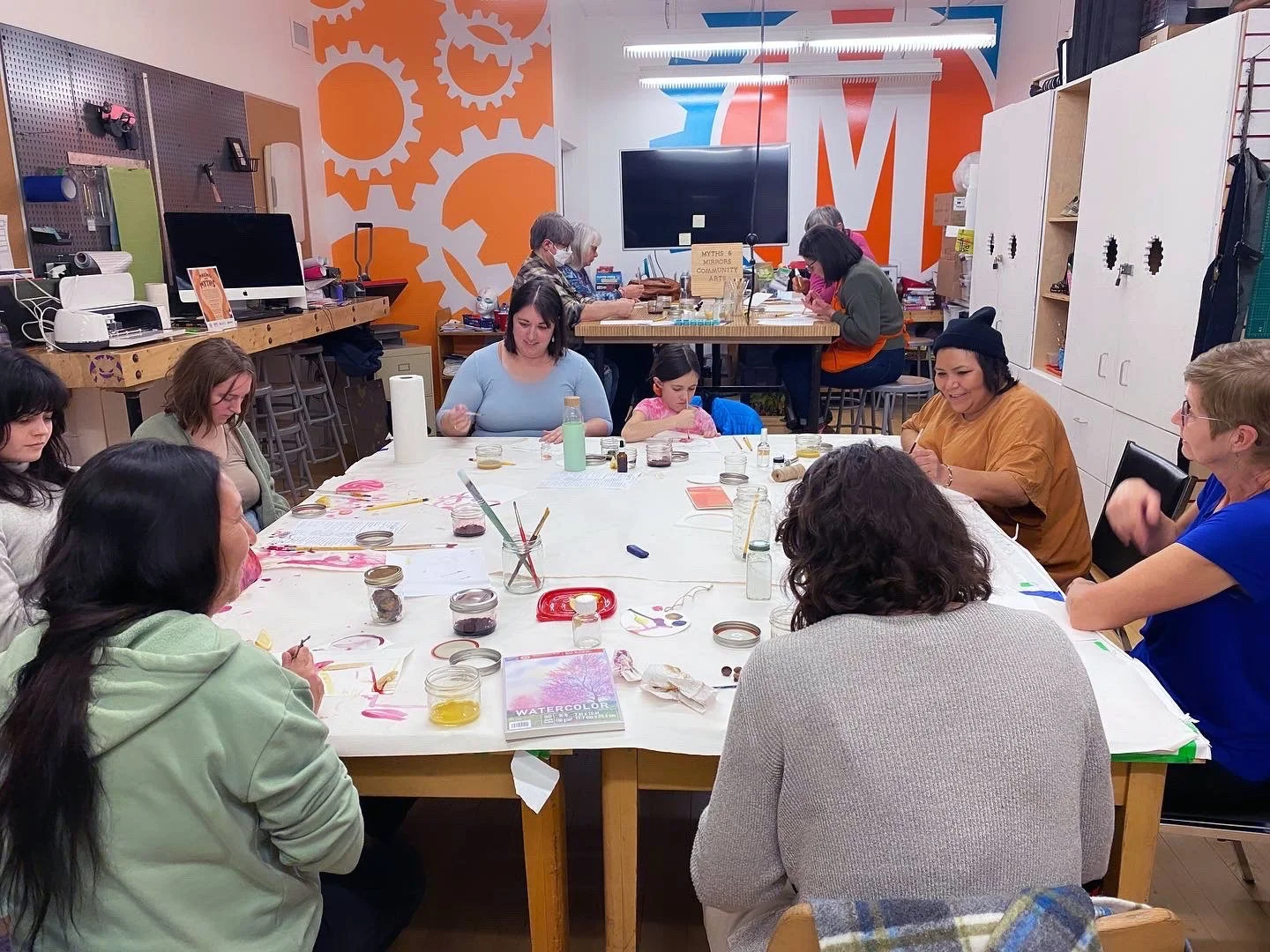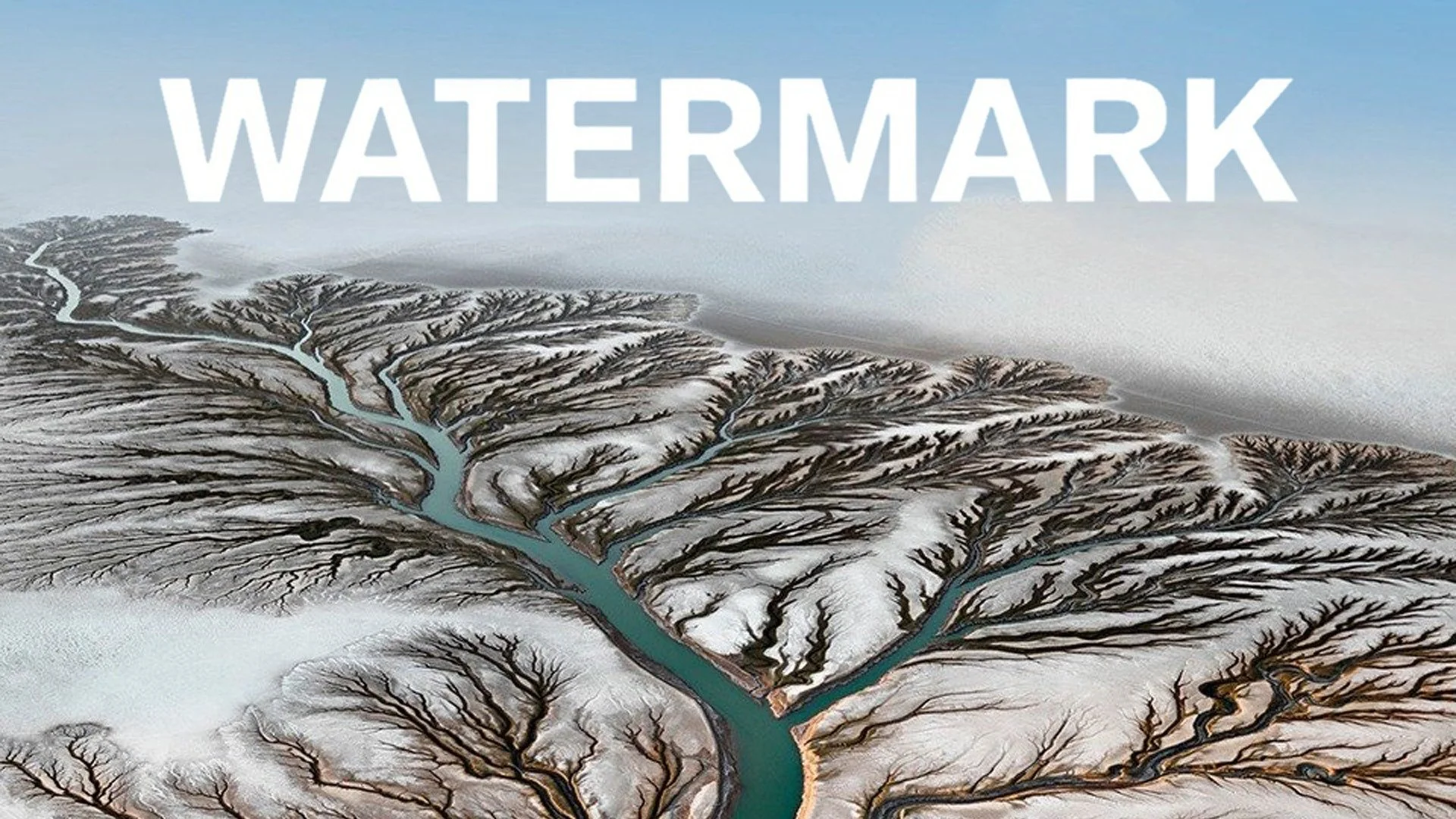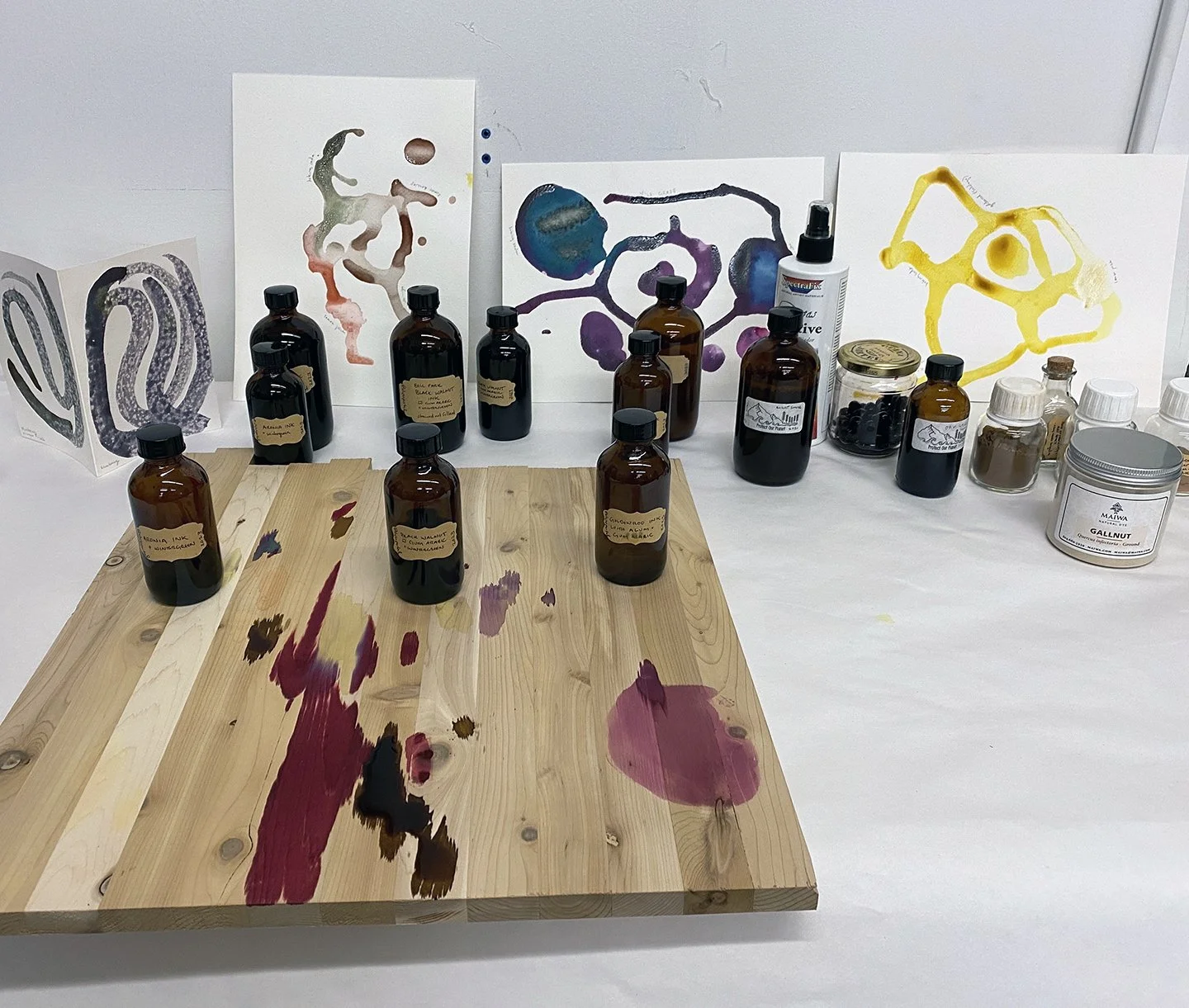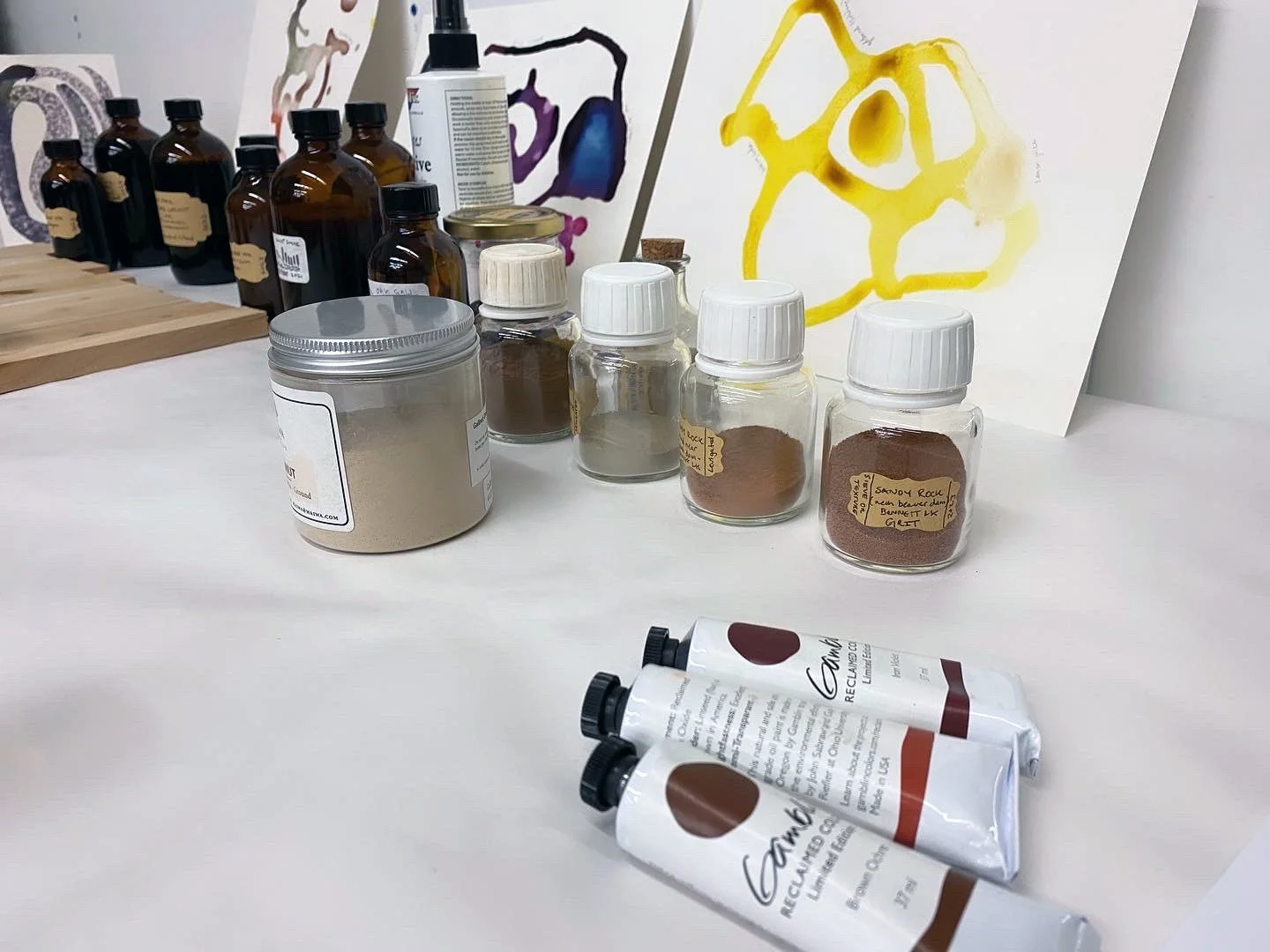teaching + mentorship
I have taught at the intersection of art + ecology within formal + informal settings, including: public school alternative art programs in the NWT + community-engaged natural pigment workshops in Northern Ontario + academic programs at the University of Toronto + Cambrian College
“Working with inks from this land is therapeutic.”
Selected Academic Teaching Portfolio
University of Toronto, Daniels Faculty of Architecture, Landscape, and Design - Visual Studies
Visual Studies 120 - Teaching Assistant
This course was an introduction to a wide range of topics situated in modernism and postmodernism that informed art and architecture practices and critical discourses. Post-1970 art and architecture were investigated through diverse societal, cultural, and political influences of postmodernism. As a TA, I attended all lectures, developed learning materials, led tutorials, evaluated and offered feedback on assignments, invigilated and marked final exams.
Slide from VIS120
University of Toronto - School of the Environment
Environmental Studies 100 - Teaching Assistant
This interdisciplinary course, Environmental Studies (100) investigated the relationship between human beings and their natural and built environments. Perspectives were explored from the sciences, social sciences and humanities to consider major social, cultural, economic, regulatory, ethical, ecological and technological aspects of environmental issues.
Watermark is a 2013 Canadian documentary film by Jennifer Baichwal and Edward Burtynsky. It concerns the history and use of water. Part of the course curriculum for ES100.
University of Toronto - Daniels Faculty of Architecture, Landscape, and Design - Visual Studies
Visual Strategies 130 - Instructor, Syllabus, Curriculum & Program Development
Visual Studies (130) was an introduction to diverse media (2D, 3D and new media), with an emphasis on experimentation and conceptual development. In addition to acquiring manual skills used in the production of contemporary visual art, students were encouraged to explore creative processes, personal reflections, and perception.
Installation practices as part of VIS130.
knowledge exchange
Grant Writing Support
Looking for grant writing strategies? I offer grant writing workshops, and assist diverse artists with grant writing support. Over the years artists with accessibility needs have worked with me to identify funding pathways to assist in the development of their applications. See resource section below.
Ecoart Exchanges
Do you want to do a studio material detox? Learn more about ecomaterial alternatives? Interested in learning a specific ecoart skill? Or have an ecoworkshop idea?
grant info exchange
-
The Canada Council for the Arts has new/early career eligibility. To get started, you need to go online and submit a profile and have it approved.
https://canadacouncil.ca/funding/grants/guide
Also provinces like Ontario have their own arts councils, which can be the best way to get your first grant.
-
Canada Council for the Arts has application assistance for the following people:
Deaf, hard of hearing, having a disability or living with a mental illness
First Nations, Inuit or Métis facing language, geographic and/or cultural barriers.
Depending on your needs, you can get funding for:
General transcription or editing services and organizing support materials
Indigenous language translation into written English or French
Sign language interpretation and translation
Application development
You need to put in a request 4 weeks prior to the development of your application for assistance.
Once approved, your grant assistant can invoice the Canada Council for the Arts directly to be paid for their assistance.
-
Canadian Artists Representation:
Professional fee schedule for artists and art service providers:
arts councils will want you to pay artists or service providers appropriately, and you can use this schedule as a structure, in order to do that fairly.
-
Granting bodies like the Canada Council for the Arts sometimes change how they structure grants, you can find a link here:
https://canadacouncil.ca/funding/grants/explore-and-create
For Ontario Arts Council, see:
-
Accessibility Fund: Project Support, Ontario Arts Council:
The program provides supplementary funds to Deaf- and disability-identifying project grant recipients to help them remove barriers to accessibility they may face while completing their OAC-funded project. Up to $5000.
https://www.arts.on.ca/grants/accessibility-fund-project-support
For the Canada Council for the Arts, contact a grant officer to learn if there are additional funds to help you complete your grant.
-
Grants are extremely competitive, especially from the Canada Council for the Arts.
One starting point can be to apply for professional development. The applications are shorter, and it can give you the time you need to develop new skills to support an application for a larger project.







